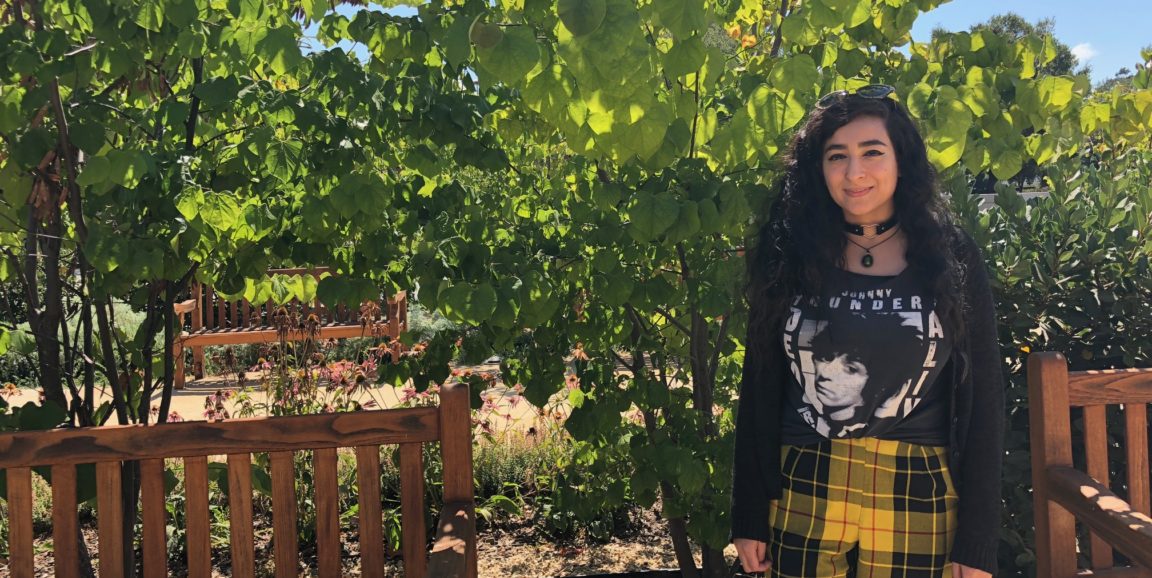When she arrived at San Francisco State to study cell molecular biology as an undergrad, Krissie Tellez was convinced the Bay Area topped her native Southern California. Now, in her fifth year as a developmental biology graduate student, she's leaning a bit more toward Los Angeles. "I miss being able to go to the beach whenever I want," Tellez admitted.
When I caught up with her recently, we geeked out about science fiction and her research — here's a closer look:
Why did you go into science?
I have no scientists in my family. It was something I ventured into on my own.
In high school, and still to this day, I was a total sci-fi nerd, so when I was in my high school biology class and my teacher mentioned stem cells and their potential to go from blank cells and into mature cells, I was super fascinated.
What are you working on today?
My current project focuses on regulation of a hormone called glucagon. It’s secreted from alpha cells in your pancreatic islets of Langerhans, and acts opposite of insulin. Glucagon tells your liver to release any glucose stores and generate new glucose while you're fasting, like during sleep. It also plays a role in diabetes. We see that in patients with diabetes not only does insulin decrease, but glucagon is misregulated.
What is your daily routine like?
I’ll come in, check my emails, and see if there are any human tissue donations for our experiments. I check on my mice.
Then, it depends. Some days I’m really busy running experiments like Elisas, which are plates coated with antibodies where we put mouse serum or media from cell culture and measure small amounts of proteins, like glucagon. Other days I spend a lot of time with my mice. About once a week, I like to have a more relaxed day where I'm able to spend a majority of my time reading and/or writing.
What is a challenge in your field right now?
For my field of research, the number of islets (a part of the pancreas) is a challenge, so it’s a quantity problem. From one mouse, you can maybe get 150-400 islets at most, so analyzing certain interactions is very tough. Also, it would be great if we could keep islets alive in culture for longer. Right now, I’m usually limited to about a week, because after that the natural regulated secretions of the hormones usually become disrupted.
What is most fulfilling about your work?
There’s this really fun discovery aspect that I feel is very specific to science. Having a question and being able to test that question experimentally and work toward answers — it’s fun.
What sci-fi films or books can you recommend?
I really love the 'Star Wars' franchise. As far as novels, 2001: A Space Odyssey is so beautifully written and one of my all time favorites.
What do your colleagues not know about you?
I make clothes. I love sewing, it’s been a nice way to relax.
Any advice for future scientists?
The biggest advice is to take ownership of your research projects. Start research as early as possible. Find a PI that’s interested and supportive of you — those relationships are really important.
What do you want to learn or know how to do that you don’t now?
I’d like to learn coding — especially R. I wish I had learned in undergrad, or earlier in grad school, because data analysis of sequencing data does requires some knowledge of these coding languages.
Do you have a mantra you live by?
Be truthful, especially in science. It’s okay for things to fail.
What is your ultimate career goal?
I’m still considering a lot of things, including science policy. I like the idea of being able to advocate for scientists.
I’m also looking into science communication. I think it’s important to take what we know as scientists and translate it for the public.
Academia is also an option. I was lucky to have amazing mentors, so I’d love to be a part of inspiring young scientists and support them.
Photo by Roxanne Ohayon




